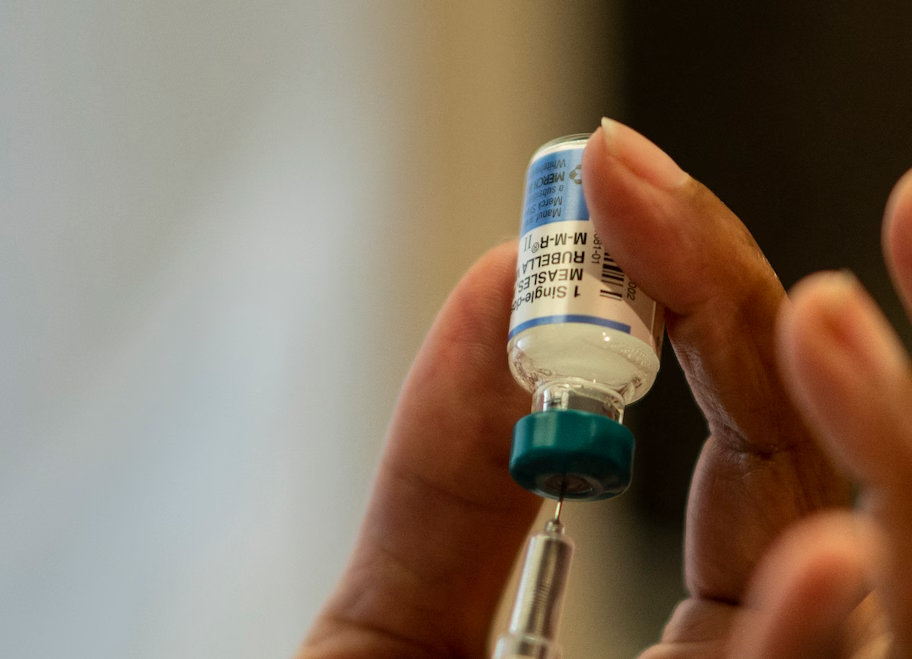Measles cases in the United States are a concern for health authorities, parents and those in the affected communities. Meanwhile, this flu season, cases have led to school closures and strained hospital systems all across the country.
Vaccines are the best defense against many infections, health-care experts said, and they encouraged people to stay up to date on their shots for themselves and their children. Some vaccines, such as the two doses of the measles, mumps and rubella vaccine, or MMR, provide immunity for many years, while other vaccines such as the influenza vaccine can provide protection for a season.
Most Americans were vaccinated for a number of diseases as children, but experts said it can be impossible for adults to remember the shots they received decades ago, and in many cases, medical records can be hard to find.
“If you’re a 57-year-old adult like me, well, I’m sure that my pediatrician is no longer around,” said Daniel Salmon, a professor of international health at the Johns Hopkins Bloomberg School of Public Health. “For many adults, especially older adults, there may not be a single source for their immunization record.”
Start by asking your health-care provider if they have your vaccination records. You can also contact your state’s health department. States, and some major cities, have vaccine registries.
But there is no national database, and a state’s vaccination records may not be comprehensive for adults, experts said. It can be “very, very difficult” for people to keep track of their vaccinations when they move or travel out of state for health care, said Priya Sampathkumar, an infectious-disease specialist at Mayo Clinic.
“We have a really fragmented health-care system,” Salmon said, causing records supporting individual-level vaccines to often be scattered.
Based on a patient’s age and medical history, Sampathkumar said, she can tell someone the vaccines they should have gotten. But then they have to “do some legwork,” she said.
Ask your parents or a caregiver if they have records from when you were a child. Call your past health-care providers. Some employers, including the military, require vaccinations and may have records. Schools and universities may, as well.
If your parents didn’t object to vaccines, you can make a “reasonable assumption” you got the vaccinations required to go to school in the United States, Sampathkumar said.
Sampathkumar said she tells people that when they get a vaccine, they should take note of it in their phone. And if they have access to their records online, through their health-care provider, they should download and save the documents.
“I keep a vaccine card,” said Emily Smith, an associate professor of global health at George Washington University Milken Institute School of Public Health. “I have my doctor put on it — or the pharmacist put on it — when I get a vaccine on that card.”
If no records can be found, a person can get a blood test to see whether they have antibodies against certain viral infections, said Joseph Teel, a professor of clinical family medicine at the Perelman School of Medicine at the University of Pennsylvania.
And, when in doubt, it doesn’t hurt to just get another dose of a vaccine, Sampathkumar said.
The Centers for Disease Control and Prevention has a guide for adult vaccinations, according to age. People with medical conditions such as heart disease or kidney failure may need additional vaccinations. Here are some of the vaccines recommended by the CDC.
Coronavirus: Generally, once a year for people under 65. Two or more doses for adults 65 and older.
Influenza: Generally, once a year.
Respiratory syncytial virus (RSV): When pregnant and for adults 75 and older. At-risk adults, ages 60 to 74, can also get this vaccine.
Tetanus, diphtheria, pertussis (Tdap): Generally, once every 10 years. Also, when pregnant, if you have a puncture wound or if you are going to be around a newborn.
Measles, mumps, rubella (MMR): Adults who don’t have presumptive immunity should get at least one dose of the vaccine.
Varicella (chicken pox): Generally, two doses if no evidence of immunity.
Zoster recombinant (shingles): Two doses for adults 50 and older.
If you’re planning to travel internationally, you should consult the CDC’s country-by-country guide for recommended vaccinations, Teel said.
It’s not too late, experts said. This year’s flu season is “quite severe,” and the virus will continue to circulate through May in many parts of the country, Sampathkumar said.
“Definitely get it now if you haven’t,” Smith said. “It might save you from getting a second round of flu this year.”



